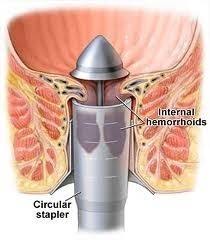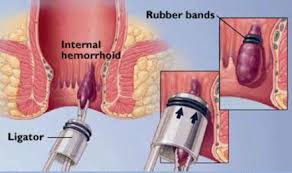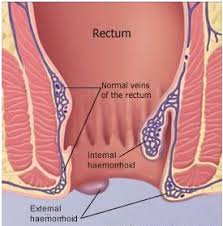Pawar Multispeciality Hospital is offering high standard, superior quality services to the piles patients and earned a name and fame over the Pune. We use state-of-art diagnostic and treatment facilities to meet the ever-increasing demands. We have refined tools for operation of piles.

What is Piles or Hemorrhoids?
Piles or Hemorrhoids is a general disease affecting men or women of any age group. The consistent stress on blood vessels that are present in the anal area develops hemorrhoids. It creates swelling or inflammation of the veins in the anus or rectum; capillaries grow weak and give irritable feeling while moving the bowel. Piles or a hemorrhoid is also known as “Bavasir” in Hindi and “Mulvyadh” in Marathi.
Types of Piles
They are of two types as internal or external.
- Internal Hemorrhoids :
Exhibit near the anal area and induce bleeding. They are pain-free, and one cannot feel its presence as they are already present inside the anus.
- Internal hemorrhoids include four classes as follows:
- Grade I - It does not cause protrusion from the anus
- Grade II - Bulging occurs via anus during straining and bowel movement, but spontaneously acquire original position
- Grade III - Come out of the anus with bowel, but entered back by using finger
- Grade IV - Project from the anus and cannot move back to its original place
- External Hemorrhoids :- These kinds of piles gives blue colored skin and provides an itchy and painful feeling.
- Prolapsed Hemorrhoids: They develop as a consequence of the projection of internal hemorrhoids through the anus. Prolapsed piles are severe and cause bleeding and give the sense of incompleteness after a bowel movement.
- Thrombosed Hemorrhoids : It represents the tissue lump or mass near the anal skin and exerts pressure and produce pain.
What are the causes of Piles?

Following are the reasons for the growth of hemorrhoids
- Constipation or extreme strain while bowel discharge
- Continued diarrhea
- Genetics or inherited factor
- Pregnancy is the main reason for the development of piles in women
- Eating an unhealthy diet
- Psychological or mental stress
- Extended sitting at a single place
What are the symptoms of Piles?
Following are the symptoms for the hemorrhoids:
- Unwillingness to pass the bowel
- Bleeding at the time of bowel action
- Itching or irritation near the anus
- Inflammation or swelling near the anus
- The appearance of a tissue mass or lump in the anorectal area
Available Treatments of Piles

A. Non-operative treatment
- The slowly increase the amount of fiber in the diet
- Intake of enough water or other water-based liquid
- Do not delay to empty your bowel as it makes the stool hard and dry
- Maintain body weight
- Regular exercise to regulate the circulation
B. Operative treatment
There are some piles surgery options may bring some relief to the patients having severe piles. Among them, the advanced laser treatment and minimally invasive laparoscopic treatments show more effective results. Both procedures are simple; do not need the cuts or prolonged hospitalization. These are the outpatient processes take a few minutes to complete.
Minimally invasive laparoscopic treatments: These treatments are less painful and free of external incisions or cuts. In this process, the blood vessels present at the basal portion of hemorrhoids are stapled and distributed in the anal channel. Due to this the hemorrhoid node pulled inside and gave fast recovery with less hospitalization.
Prevention of Piles
- Add high fibers to your diet
- Drink enough water and other liquids
- Use medications to manage diarrhea
- Do easy activities to prevent the strain during bowel release
- Make routine bowel practices
Pre-Surgery Instructions
- Get regular bowel action
- Do not eat a heavy meal after the night, but you can drink water ere 4 hours of treatment
- Take a bath to before surgery
- Take prescribed medications as directed
- Do not drink tea, coffee
Post Treatment Precautions
- Take support of a person to go home
- Do not remove the dressings from the scar
- Discharge urine at the end of the day of surgery
- Drink an inadequate amount of liquids





